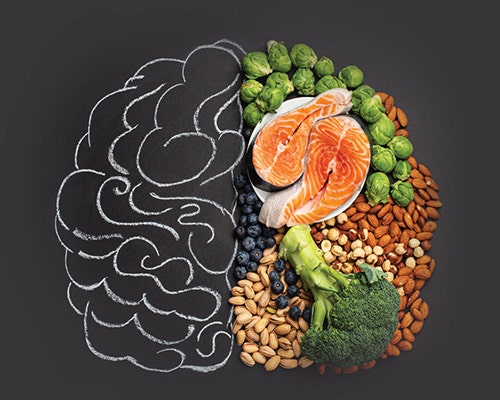Quiet, Please
- 1/14/16

[vc_column el_id="text-content" css=".vc_custom_1516290507571{margin-top: -40px !important;padding-right: 0px !important;padding-left: 0px !important;}"][vc_column_text]When it comes to too much noise in your life, you may think that it affects only your hearing. Not so. Perhaps William H. Stewart, former U.S. Surgeon General says it best: “Calling noise a nuisance is like calling smog an inconvenience. Noise must be considered a hazard to health of people everywhere.” The truth is that studies point to noise causing unfavorable physiological changes in sleep, blood pressure, cardiovascular, gastrointestinal and other changes, including irritation levels, negative effects on mental health as well as unhealthy impacts on developing fetuses. Noise can even adversely affect one’s creativity.
For starters, noise is one of the most common forms of sleep disturbances. If it goes on unrelenting, then health can take hits on many levels, including depression, cognitive problems, aging your skin, making you forgetful and causing you to gain weight. Likewise, lack of sleep can put you at increased risk for serious health problems, including diabetes, stroke, high blood pressure, irregular heartbeat, heart disease, heart attack and heart failure.
Noise can also elevate your blood pressure, but the jury’s still out on whether those are temporary or permanent changes. Either way, that’s not too positive. Likewise, noise can cause adverse cardiovascular effects. Levels of epinephrine and norepinephrine increase when exposed to excess noise, indicating cardiovascular responses.
Then there’s noise and your tummy. Studies indicate a link between noise exposure and increased gastric emptying, increased peristaltic esophageal contraction as well as increased anxiety. Another study points out that there is increased use of antacids, sedatives and anti-hypertensives (high blood pressure meds) in noisy neighborhoods compared to quiet ones.
Now we add “being annoying” to the list. Simply put, noise can be bothersome. For example, in one study, nearly 70 percent of residents living within flight corridors said they were bothered by aircraft noise and that it interfered with daily activities. They were also more likely to note sleep difficulties and to consider themselves in poorer health. Noise can also bring out aggression and other undesired behaviors. For instance, there are reports of noise disputes leading to violence. Likewise, the Daily Mirror has reported murders and suicides due to chronic noise.
Getting quiet time is also necessary for creativity, since up to 90 percent of a person’s decisions are made by his or her subconscious, not conscious, brain—and the subconscious brain does its best work while the mind rests. British psychologist Gemma Calvert, a global pioneer in observing the human brain’s response to stimuli, says, “We actually have the brain imaging data now to show that it’s in those silent or near-sleep conditions that the subconscious brain can maximally access multiple brain areas which, it appears, are involved in creative thinking.”
She continues, explaining additional benefits of quiet time and creativity as well as productivity:
So, quiet, please. Our health and creativity may depend on it.
This information is intended for educational and informational purposes only. It should not be used in place of an individual consultation or examination or replace the advice of your health care professional and should not be relied upon to determine diagnosis or course of treatment.
For starters, noise is one of the most common forms of sleep disturbances. If it goes on unrelenting, then health can take hits on many levels, including depression, cognitive problems, aging your skin, making you forgetful and causing you to gain weight. Likewise, lack of sleep can put you at increased risk for serious health problems, including diabetes, stroke, high blood pressure, irregular heartbeat, heart disease, heart attack and heart failure.
Noise can also elevate your blood pressure, but the jury’s still out on whether those are temporary or permanent changes. Either way, that’s not too positive. Likewise, noise can cause adverse cardiovascular effects. Levels of epinephrine and norepinephrine increase when exposed to excess noise, indicating cardiovascular responses.
Then there’s noise and your tummy. Studies indicate a link between noise exposure and increased gastric emptying, increased peristaltic esophageal contraction as well as increased anxiety. Another study points out that there is increased use of antacids, sedatives and anti-hypertensives (high blood pressure meds) in noisy neighborhoods compared to quiet ones.
Now we add “being annoying” to the list. Simply put, noise can be bothersome. For example, in one study, nearly 70 percent of residents living within flight corridors said they were bothered by aircraft noise and that it interfered with daily activities. They were also more likely to note sleep difficulties and to consider themselves in poorer health. Noise can also bring out aggression and other undesired behaviors. For instance, there are reports of noise disputes leading to violence. Likewise, the Daily Mirror has reported murders and suicides due to chronic noise.
Getting quiet time is also necessary for creativity, since up to 90 percent of a person’s decisions are made by his or her subconscious, not conscious, brain—and the subconscious brain does its best work while the mind rests. British psychologist Gemma Calvert, a global pioneer in observing the human brain’s response to stimuli, says, “We actually have the brain imaging data now to show that it’s in those silent or near-sleep conditions that the subconscious brain can maximally access multiple brain areas which, it appears, are involved in creative thinking.”
She continues, explaining additional benefits of quiet time and creativity as well as productivity:
- In-the-moment brainstorming doesn’t get the best results, since it puts pressure to come up with amazing ideas on the fly without adequate quiet “think” time.
- An hour of reflection can make you more effective at work than three hours spent with your nose to the grindstone, since stress and fear suppress creativity. A lunch hour can be a great time to recharge your brain power.
- Multi-tasking may be overrated. Flitting from one topic or task to the other simultaneously can blunt the sharpness of the brain. The brain is wired to focus, so tackle one item at a time and mark it off your list.
So, quiet, please. Our health and creativity may depend on it.
This information is intended for educational and informational purposes only. It should not be used in place of an individual consultation or examination or replace the advice of your health care professional and should not be relied upon to determine diagnosis or course of treatment.




